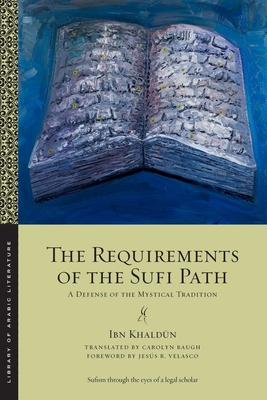
Khaldūn, Ibn
product information
description
egal scholar In The Requirements of the Sufi Path, the renowned North African historian and jurist Ibn Khaldūn applies his analytical powers to Sufism, which he deems a bona fide form of Islamic piety. Ibn Khaldūn is widely known for his groundbreaking work as a sociologist and historian, in particular for the Muqaddimah, the introduction to his massive universal history. In The Requirements of the Sufi Path, he writes from the perspective of an Islamic jurist and legal scholar. He characterizes Sufism and the stages along the Sufi path and takes up the question of the need for a guide along that path. In doing so, he relies on the works of influential Sufi scholars, including al-Qushayrī, al-Ghazālī, and Ibn al-Khaṭīb. Even as Ibn Khaldūn warns of the extremes to which some Sufis go--including practicing magic--his work is essentially a legal opinion, a fatwa, asserting the inherent validity of the Sufi path. The Requirements of the Sufi Path incorporates the wisdom of three of Sufism's greatest voices as well as Ibn Khaldūn's own insights, acquired through his intellectual encounters with Sufism and his broad legal expertise. All this he brings to bear on the debate over Sufi practices in a remarkable work of synthesis and analysis. An English-only edition.
member goods
No member items were found under this heading.
Return Policy
All sales are final
Shipping
No special shipping considerations available.
Shipping fees determined at checkout.







